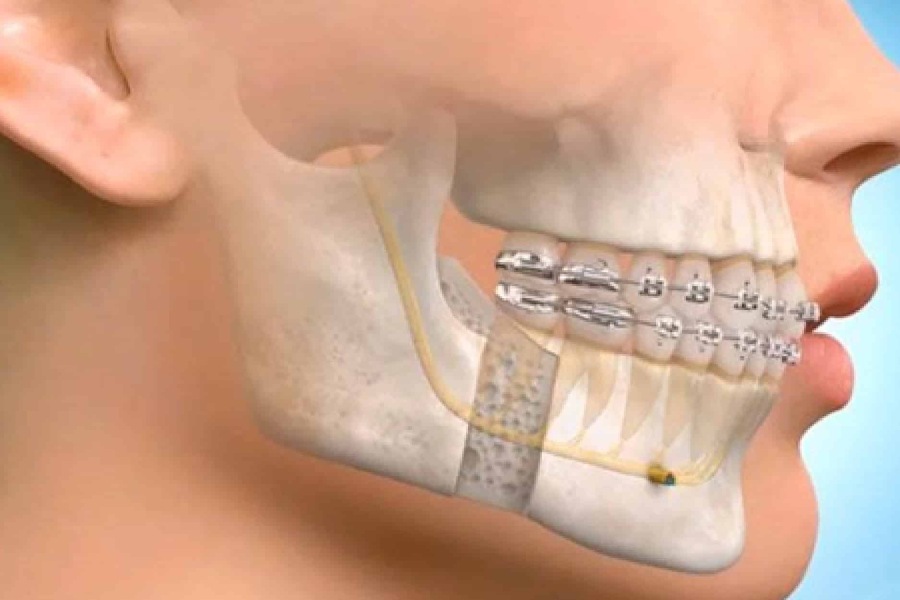Maxillofacial Surgeries

Maxillofacial surgery, also known as oral and maxillofacial surgery (OMS), is a specialized branch of dentistry that focuses on the diagnosis and surgical treatment of diseases, injuries, and defects of the head, face, jaw, and neck regions. It encompasses a wide range of procedures, including corrective jaw surgery, facial trauma surgery, orthognathic surgery, and reconstructive surgery.
Here are some common types of maxillofacial surgeries:
1. Corrective Jaw Surgery (Orthognathic Surgery): This surgery is performed to correct problems with the jaw and facial structure, such as misaligned jaws, malocclusion (improper bite), and facial asymmetry. It involves repositioning the upper jaw (maxilla), lower jaw (mandible), or both, to improve the overall function and aesthetics of the face.
2. Facial Trauma Surgery: Maxillofacial surgeons are trained to treat facial injuries resulting from accidents, falls, sports-related incidents, or interpersonal violence. These surgeries may involve repairing fractured facial bones, reattaching severed facial structures (such as nerves or blood vessels), and addressing soft tissue injuries.
3. Cleft Lip and Palate Repair: Maxillofacial surgeons play a crucial role in the comprehensive treatment of cleft lip and palate conditions. These birth defects can affect the lip, the roof of the mouth (palate), or both. Surgery is performed to repair the cleft and improve speech, feeding, and overall facial aesthetics.
4. Reconstructive Jaw Surgery: This type of surgery is performed to restore the form and function of the jaw after trauma, tumor removal, or congenital deformities. It may involve bone grafting, the placement of dental implants, or the use of other techniques to rebuild and restore the jaw’s structure.
5. Temporomandibular Joint (TMJ) Surgery: TMJ disorders can cause jaw pain, difficulty in jaw movement, and other related symptoms. Maxillofacial surgeons may perform surgery to treat severe cases of TMJ disorders, including arthroscopy, joint replacement, or joint repositioning.
6. Facial Cosmetic Surgery: Some maxillofacial surgeons also have expertise in facial cosmetic procedures, such as facial rejuvenation, rhinoplasty (nose surgery), chin augmentation, and facial implants. These surgeries focus on improving facial aesthetics and enhancing the patient’s appearance.
Maxillofacial surgery is a complex field that requires specialized training and expertise. Surgeons in this field often work closely with other healthcare professionals, including orthodontists, otolaryngologists (ENT specialists), and plastic surgeons, to provide comprehensive care to patients. If you are considering maxillofacial surgery, it is important to consult with a qualified maxillofacial surgeon who can evaluate your specific condition and recommend the most appropriate treatment options.
Frequently Asked Questions
1Q. What is a maxillofacial surgery?
Ans: Finedent Dental Clinic in Nanakramguda, Hyderabad, specializes in maxillofacial surgery, offering advanced procedures to address issues related to the face, jaw, and neck such as trauma, congenital defects, and jaw misalignments.
2Q.What category is maxillofacial surgery under?
Ans: Finedent Dental Clinic, situated in Nanakramguda, Hyderabad, is a premier provider of oral and maxillofacial surgery services, catering to the specific needs of patients in the local community.
3Q.What are the fields of oral and maxillofacial surgery?
Ans: At Finedent Dental Clinic in Nallagandla, Hyderabad, the experienced team covers a wide range of fields within oral and maxillofacial surgery, including corrective jaw surgery, facial reconstruction, oral cancer treatment, dental implants, and management of facial trauma and infections.
4QWhat is the purpose of maxillofacial?
Ans: Finedent Dental Clinic at Nallagandla, Hyderabad, focuses on the purpose of maxillofacial surgery, aiming to improve both the functional and aesthetic aspects of the face and jaw. Specialized interventions address misalignments, deformities, injuries, and diseases to enhance overall oral and facial well-being.
